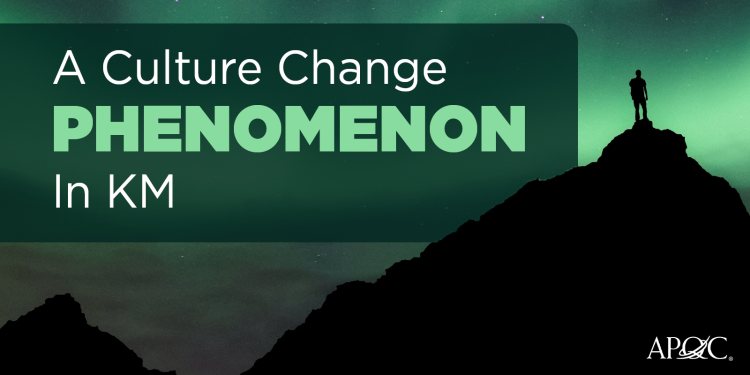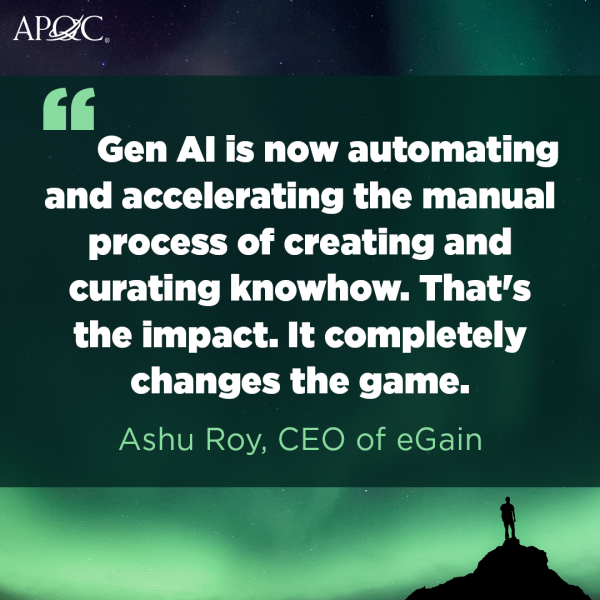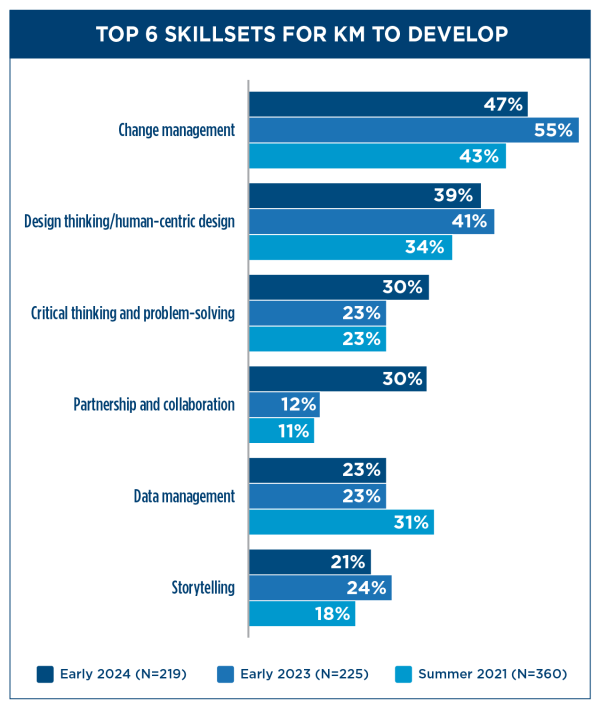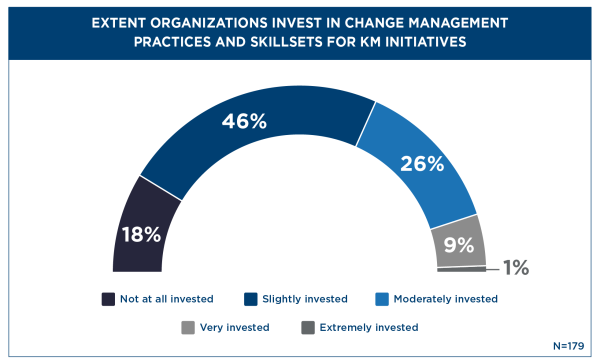
One of the top priorities for knowledge management (KM) professionals to focus on in 2024 is to incorporate artificial intelligence (AI)/generative AI (Gen AI) within their organizations. Almost a year ago, I wrote about preparing for AI and shared four pieces of advice: 1) establish a good content management foundation, 2) ensure there is a valid business reason for leveraging AI, 3) engage the right partners, and 4) consider the impact on the people.
A year later, technological advancements have solidified KM’s role as a crucial partner, particularly in the realm of generative AI and ensuring a solid content management infrastructure. And while I believe my original advice to remain true, this partnership enhances both AI and KM, creating a symbiotic relationship where each benefits from the other. KM has earned a prominent place in many organizations, not merely due to its technical prowess—though impressive—but because it is fundamentally a people-centric discipline. KM teams will excel in facilitating cultural shift, educating, and collaborating with individuals affected by the AI revolution, bringing the need for essential change management skills to the forefront. This era of AI we are experiencing is, above all, a cultural transformation.
If you’ve been involved in KM for a while, you likely know that AI has been part of the conversation long before generative AI emerged in late 2022. AI has been discussed in KM circles since the 1950s. Back then, as with any new technology, many companies invested significant resources into exploring its potential capabilities, with some KM trendsetters leading the charge.
Over the years, AI has remained a KM strategy that few have fully or effectively adopted. Instead, the focus shifted primarily to creating knowledge bases, communities of practice, developing and implementing content management strategies, applying collaboration tools and wikis, and enhancing enterprise search. These are all valuable approaches and will remain so, but now it’s time for KM to elevate its game.
A Renewed KM and AI Partnership
Recently, I had the privilege of conducting an interview with Ashu Roy, CEO of eGain. He shared a compelling perspective on the transformative power of generative AI: “Gen AI is now automating and accelerating the manual process of creating and curating knowhow. That's the impact. It completely changes the game.” At APQC, we recognize that AI implementation and adoption are rapidly growing across industries. Nearly all organizations we survey have begun or are currently implementing new AI capabilities and anticipate reaping benefits within three years or less. Those further along in their AI journey are already experiencing benefits such as increased efficiencies and a reduction in mundane tasks for knowledge workers.
To realize the anticipated benefits of AI, KM teams must focus on the human and cultural dimensions of technology. How can they achieve this? By recognizing that AI represents a cultural shift and focusing on developing and refining their change management skills. This will be a crucial step in enabling organizations to fully benefit from the potential of AI"
AI as a Cultural Transformation
Bill Marklein, founder of Employe Humanity LLC, once said, “Culture is how employees’ hearts and stomachs feel about Monday morning on Sunday night.” I believe the role of KM has always been to help employees shift their thinking and behaviors positively to achieve a knowledge-driven mindset. Convincing employees of the value AI can bring may be an even greater challenge. Shaping, sustaining, and evolving organizational culture is never easy and APQC’s research on cultural influences shows that most organizations make six common mistakes. Here are some tips to remember for each:
- Fail to align: Ensure employees understand their roles and the benefits for them.
- Set it and forget it: Continuously remind employees how daily culture “looks” and “feels”.
- Tune out the masses: Listen to and incorporate feedback from employees.
- Tolerate resistance: Manage resistance by finding common ground with struggling employees.
- Misjudge the degree of difficulty: Involve employees in the change process early and communicate value often.
- Lack focus: Make culture an integral part of your organizational strategy.
Effective Change Practices in KM
Since a cultural transformation is about people, KM teams must focus on managing the people side of change effectively. APQC research consistently identifies change management as the top skillset KM teams need to develop year after year because of phenomenon’s like generative AI.
Mastering change capabilities is crucial not only for supporting traditional KM implementations but also for navigating the complexities of AI. Both require a shift in individual behavior and, ultimately, organizational culture. APQC defines change management as the application of a structured approach to transitioning employees, teams, or an entire organization to a desired future state. And according to our recent research, there are some effective change management methods practiced by organizations that contribute to success of any organizational change, and KM and AI are no exception. By incorporating these practices and ensuring that change management is an ongoing part of your KM and AI strategies, you can advance the maturity of your KM program, ensure the adoption of AI capabilities, and keep employees engaged. Some successful practices include:
- Measuring the impact of the change
- Ensuring employee adoption and engagement
- Managing employee resistance
- Gaining leadership/sponsorship support
- Following a structured approach
- Executing robust communication plans
- Effectively planning and delivering training
APQC research shows that 4 out of 5 KM teams are at least slightly invested in change management practices and skillsets—a clear indication that managing the people side of KM remains a priority. This focus is expected to grow, especially as cultural transformations like generative AI impact organizations and continue to draw KM in as a crucial partner.
To learn more about KM’s role in AI, consider these additional resources: Emerging Technologies for KM: Artificial Intelligence and Bridging the Gap: Exploring Change Management Practices in KM.


